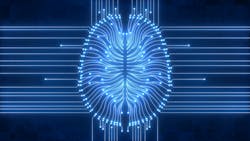Could AI play a role in locating damage to the brain after stroke?
Artificial intelligence (AI) may serve as a future tool for neurologists to help locate where in the brain a stroke occurred.
In a new study, AI processed text from health histories and neurologic examinations to locate lesions in the brain. The study, which looked specifically at the large language model called generative pre-trained transformer 4 (GPT-4), is published in the March 27, 2024, online issue of Neurology Clinical Practice, an official journal of the American Academy of Neurology.
The study used 46 published cases of people who had stroke. Researchers gathered text from participants’ health histories and neurologic exams. The raw text was fed into GPT-4. Researchers asked it to answer three questions: whether a participant had one or more lesions; on which side of the brain lesions were located; and in which region of the brain the lesions were found. They repeated these questions for each participant three times. Results from GPT-4 were then compared to brain scans for each participant.
Researchers found that GPT-4 processed the text from the health histories and neurologic exams to locate lesions in many participants’ brains, identifying which side of the brain the lesion was on, as well as the specific brain region, with the exception of lesions in the cerebellum and spinal cord.
For the majority of people, GPT-4 was able to identify on which side of the brain lesions were found with a sensitivity of 74% and a specificity of 87%. Sensitivity is the percentage of actual positives that are correctly identified as positive. Specificity is the percentage of negatives that are correctly identified. It also identified the brain region with a sensitivity of 85% and a specificity of 94%.
When looking at how often the three tests had the same result for each participant, GPT-4 was consistent for 76% of participants regarding the number of brain lesions. It was consistent for 83% of participants for the side of the brain, and for 87% of participants regarding the brain regions.
However, when combining its responses to all three questions across all three times, GPT-4 provided accurate answers for 41% of participants.

